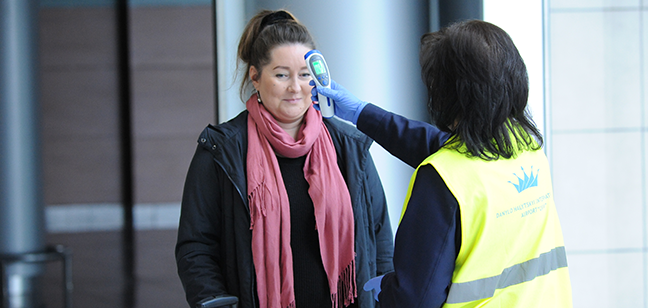The concept of so-called ‘immunity passports’ for travelers has been suggested many times since the start of the Covid-19 pandemic. Now, with the current positive outcomes of several vaccine trials, the idea has begun to gain more traction. A number of governments, industry bodies and airlines are mooting immunity-based conditions for travel, the latest of which is a suggestion by the UK government that citizens who have received the vaccine could have a stamp applied in their passports. It has also been suggested that the country’s Covid app, which is run by the National Health Service, could incorporate a vaccine record.
Prior to any vaccine being available, issuing of any immunity passport could only be based on a person having either a positive test for Covid (from which they recover) or antibodies. This is problematic, as antibodies are only present for a relatively short time after infection, with other elements of the body’s immune system affording protection in the long term.
As an article in the October issue of the British Medical Journal (BMJ) noted,1 “Patients who have recovered from their Covid-19 illness have been found to have neutralizing antibodies, which inhibit virus growth. Whether all illness results in sufficient levels of neutralizing antibodies to prevent against reinfection is still under investigation. However, experience with other coronaviruses (including viruses that cause mild illness as well as more serious diseases like severe acute respiratory syndrome (SARS) and Middle East respiratory syndrome (MERS)) suggests that antibody responses are likely to persist for at least a year and protect against reinfection at least in the short term.”
With this consideration in mind, any system based purely on a person’s previous infection record would still require the backup of a rapid testing system. However, with various vaccines seemingly around the corner, which it is assumed will convey long-term protection, the idea of passporting has begun to regain traction.
For example, Qantas CEO Alan Joyce has suggested that the airline is considering making such documents, based on vaccination, a requirement for passengers using its service – a stance that has generated no small amount of ire among civil liberties groups.
Meanwhile, IATA is pushing for the global adoption of its Travel Pass, which would still involve the systematic testing of all international travelers, but more importantly, the development of a global data-sharing system to allow it to operate. To achieve this, IATA has suggested the system would be based on four pillars: a global registry of health requirements (showing which test/vaccine records each country requires), and a similar register of approved testing facilities alongside two apps, one to allow test labs to share records and another for passengers to manage test results and records.
IATA is currently working on a trial of such a system with IAG, in an effort to develop the necessary information flows. As Nick Careen, IATA’s senior vice president, airport, passenger, cargo and security, explained, “Our main priority is to get people traveling again safely. In the immediate term that means giving governments confidence that systematic Covid-19 testing can work as a replacement for quarantine requirements. And that will eventually develop into a vaccine program. The IATA Travel Pass is a solution for both.”
Currently, IATA’s approach seems the most pragmatic, but the scale of the challenge it presents – harmonizing many thousands of different data sources into a global standard – should not be underestimated. It may also be the case that by the time the system is created and stress tested, various governments will have introduced their own schemes, or widespread vaccination and/or natural regression of the virus will have removed the perceived threat from the public eye. Any scheme would also have to pass many legislative hurdles, varying from country to country, along with consideration of inevitable legal challenges from civil liberties proponents.
As it stands, the aviation industry is still stuck between a rock and a hard place when it comes to ‘Covid-safe’ travel, and there is little sign of widespread political will to develop a globally unified escape route.
References
1) Passport to freedom? Immunity passports for COVID-19, R C H Brown, J Savulescu, B Williams, D Wilkinson, BMJ October 2020


